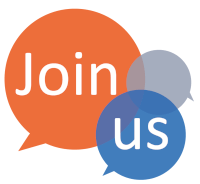What is Post Traumatic Stress Disorder?
Post-traumatic stress disorder (PTSD) is an emotional disorder that arises after a terrifying, life-threatening, or otherwise dangerous incident. PTSD patients relive the traumatic event or events in some way, avoid places, people, or other things that remind them of the event (avoidance), and are hypersensitive to everyday life occurrences (hyperarousal).
What are the effects of PTSD?
Prolonged PTSD could have severe effects on patients' functioning and relationships, as well as their families and society. Women who were sexually molested as children have a higher risk of developing complicated PTSD and borderline personality disorder. Babies born to moms who have this condition during pregnancy are more likely to have a change in at least one chemical in their bodies that makes them more prone to get PTSD later in life (predisposes). Individuals suffering from this ailment are in danger of developing other medical issues as well as having difficulty reproducing. On an emotional level, PTSD sufferers may find it more difficult to get the same positive results from mental-health treatment as persons with other emotional issues. PTSD can have a substantial negative impact on a child's or teen's social and emotional development, as well as their capacity to learn.
What are the signs and symptoms of PTSD?
The following are the three types of symptoms that must be present in order to diagnose PTSD.
- the recurring or re-living of the trauma (for example, troubling memories, flashbacks triggered by reminders of the traumatic events, recurring nightmares about the trauma, and/or dissociative reliving of the trauma),
- a general numbing of emotional response and avoidance to the point of having a phobia of places, people, and situations that remind the victim of the trauma, and
- Sleep issues, difficulty concentrating, irritability, aggression, poor concentration, blackouts or difficulty remembering things, increased inclination and reactivity to being startled, and hypervigilance to threat are all chronic physical indicators of hyperarousal.
How is PTSD treated?
Psychological and medicinal treatments are commonly used to treat PTSD. The usual strategies used in psychotherapy for this condition are providing information about the illness, helping the individual handle the trauma by talking about it directly, teaching the person ways to control PTSD symptoms, and exploring and modifying erroneous ways of thinking about the event.
PTSD sufferers are frequently educated on what PTSD is, that it is caused by extreme stress rather than weakness, that it can be cured, and what to expect throughout treatment. As a result of this knowledge, it's more likely that the person's misconceptions about the condition will be dispelled, and any shame they may feel about having it will be diminished. This may be especially significant in populations such as military people, who may be stigmatized by the thought of seeing a mental-health specialist and hence avoid it. Family counselling, couples counselling, online counselling, parenting training, and conflict resolution education may be beneficial to PTSD sufferers' families as well as the sufferer. Family members may also be able to contribute information about their loved one's past (such as emotions and behaviours, drug usage, sleeping habits, and sociability) that people with the condition are unable or reluctant to reveal.
How can people cope with PTSD?
Learning more about PTSD and talking to friends, family, experts, and PTSD survivors for support are some of the ways that PTSD patients are commonly advised to live with their illness. It may be beneficial to join a support group. Other suggestions include reducing stress through relaxation techniques (for example, breathing exercises, positive imagery), actively participating in treatment as recommended by professionals, increasing positive lifestyle practices (for example, exercise, healthy eating, distracting oneself through keeping a healthy work schedule if employed, volunteering whether employed or not), and minimizing negative lifestyle (for example, smoking, drinking too much alcohol, etc. ), and minimizing the negative daily habits (for example, smoking, drinking too much alcohol, etc.).
















